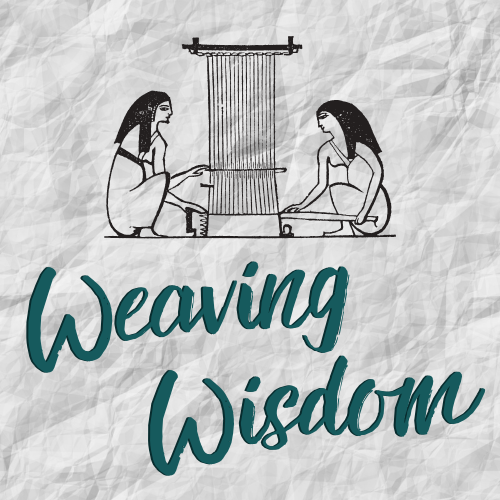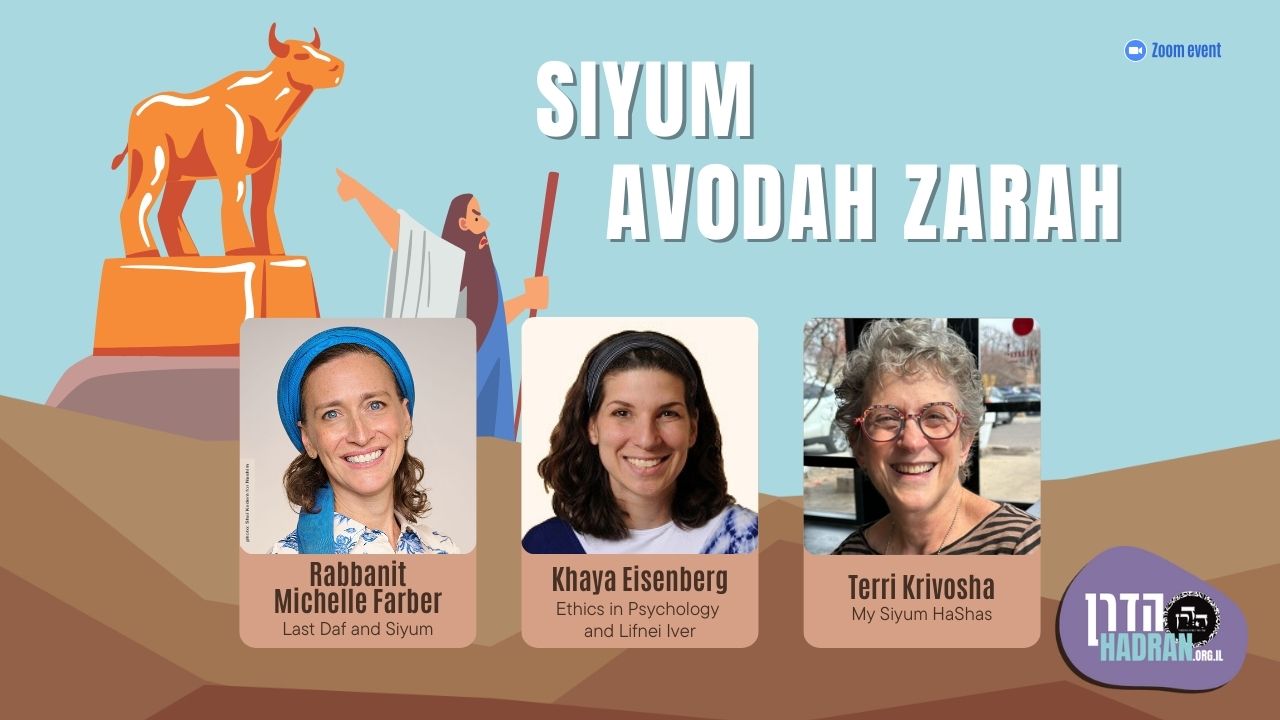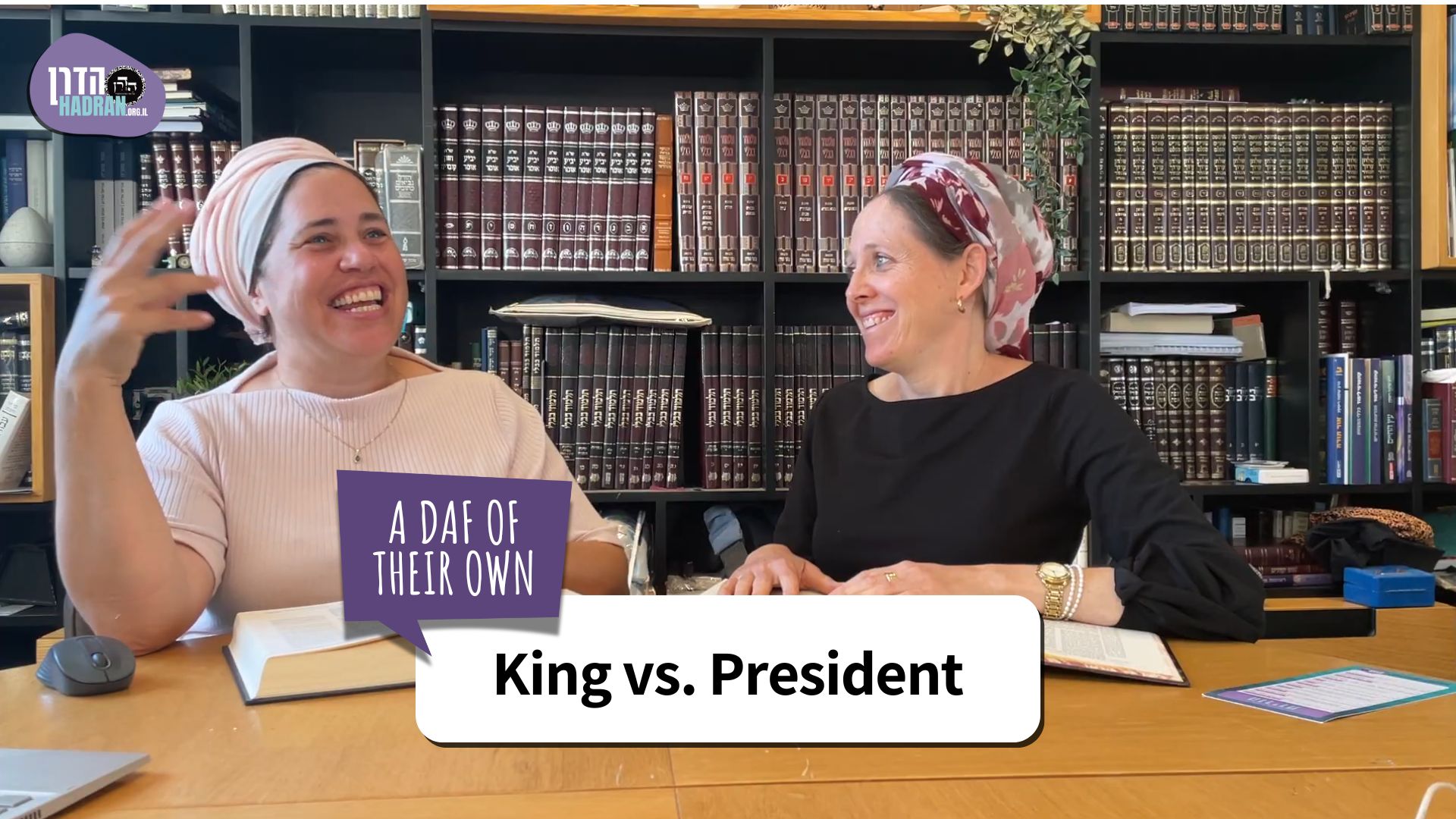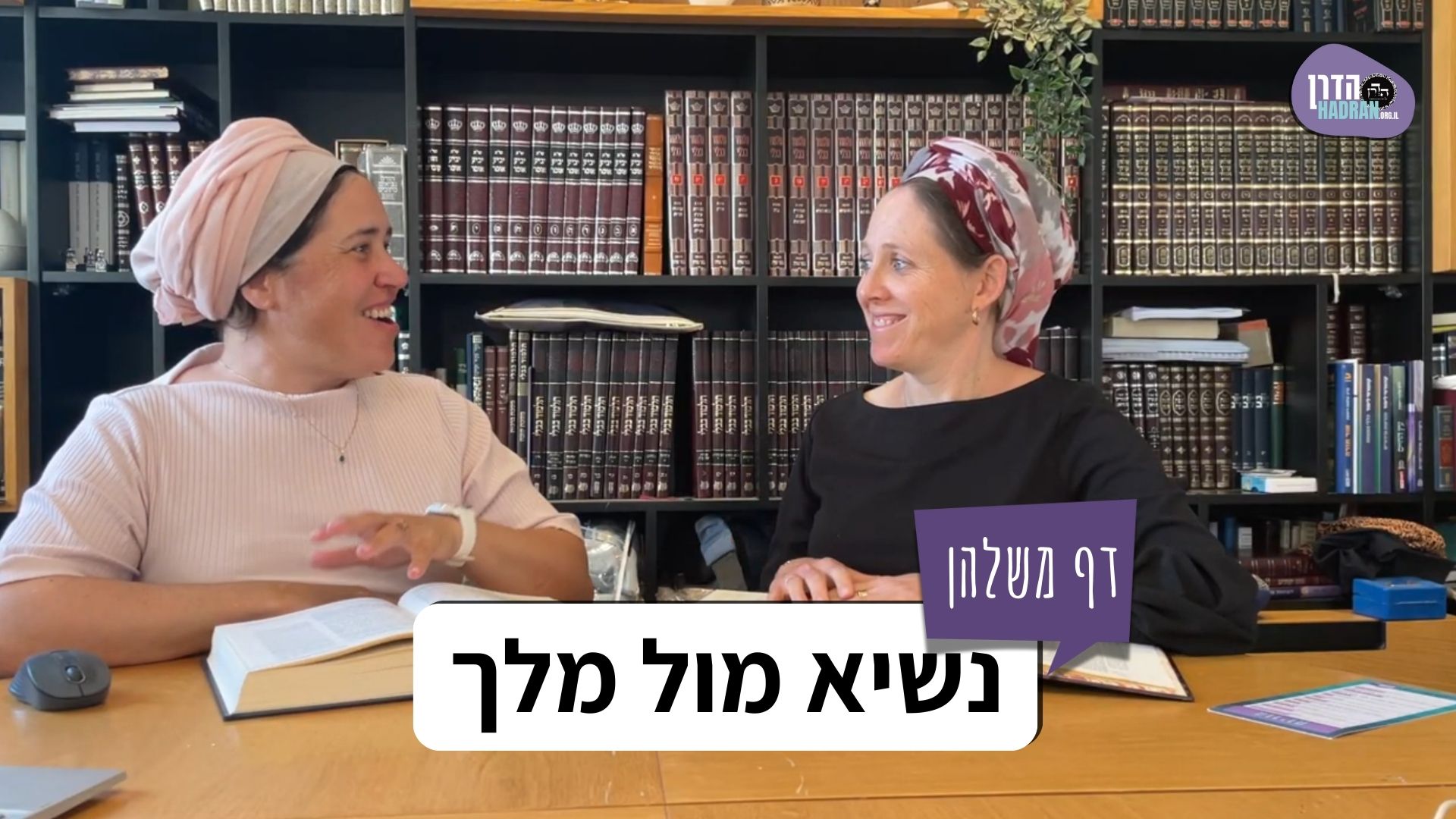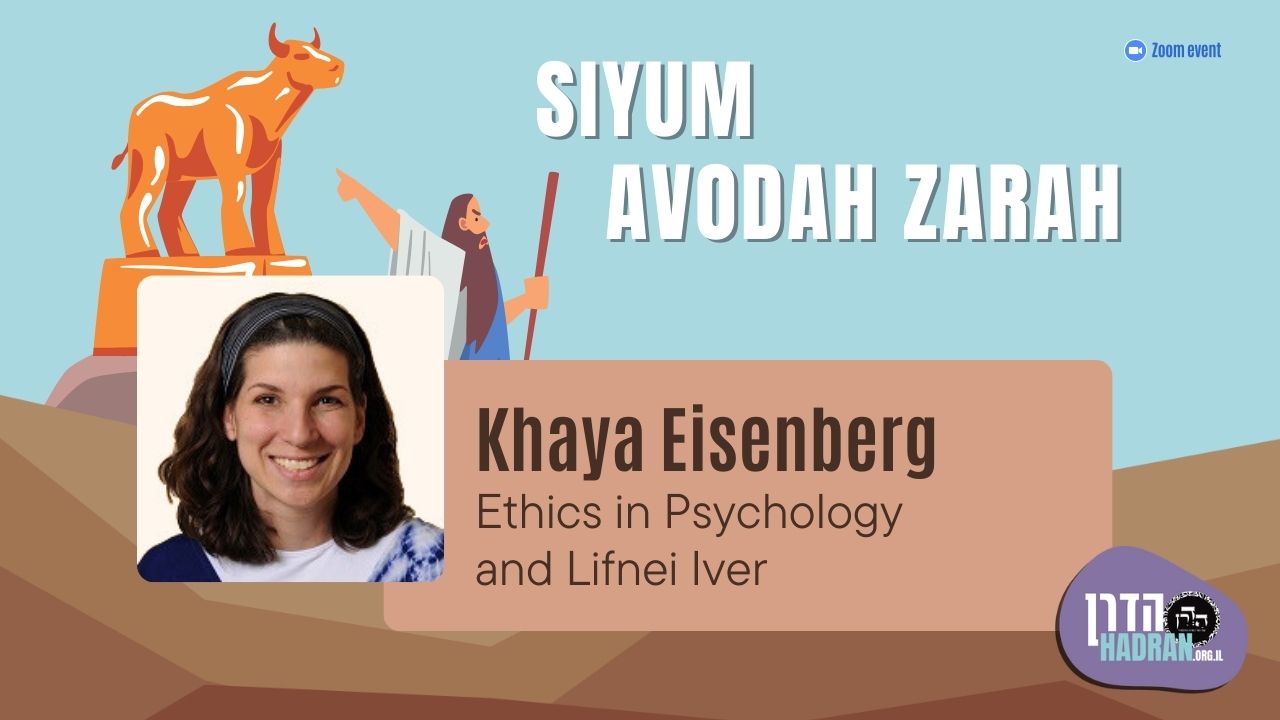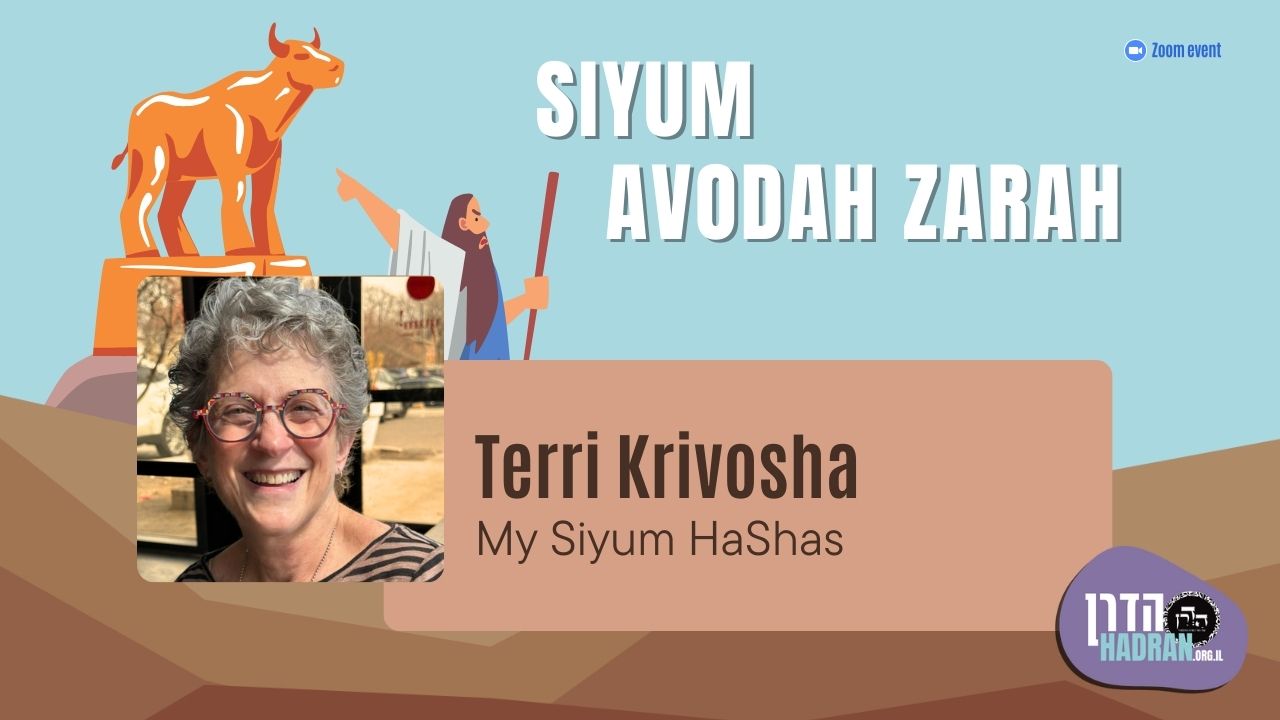עירובין פב
גַּבְרָא אַגַּבְרָא קָא רָמֵית?! מָר סָבַר פְּלִיגִי, וּמָר סָבַר לָא פְּלִיגִי.
Are you raising a contradiction between the opinion of one person and that of another? In other words, a difficulty cannot be raised from the statement of one amora against those of another. One Sage, Shmuel, maintains that Rabbi Yehuda and the Sages disagree, and one other Sage, Rabbi Yehoshua ben Levi, maintains that they do not disagree.
גּוּפָא, אָמַר רַבִּי יְהוֹשֻׁעַ בֶּן לֵוִי: כׇּל מָקוֹם שֶׁאָמַר רַבִּי יְהוּדָה ״אֵימָתַי״ וּ״בַמֶּה״ בְּמִשְׁנָתֵינוּ — אֵינוֹ אֶלָּא לְפָרֵשׁ דִּבְרֵי חֲכָמִים. וְרַבִּי יוֹחָנָן אָמַר: ״אֵימָתַי״ לְפָרֵשׁ, וּ״בַמֶּה״ לַחֲלוֹק.
The Gemara analyzes the statement of Rabbi Yehoshua ben Levi cited in the course of the previous discussion. With regard to the matter itself: Rabbi Yehoshua ben Levi said that any place where Rabbi Yehuda says when, or in what case are these, in the Mishna, he intends only to explain the earlier statement of the Rabbis, not to disagree with them. And Rabbi Yoḥanan said: The term when indicates that Rabbi Yehuda comes to explain, but the phrase in what case is this, indicates that he intends to disagree.
וְ״אֵימָתַי״ לְפָרֵשׁ הוּא? וְהָא תְּנַן: וְאֵלּוּ הֵן הַפְּסוּלִים: הַמְשַׂחֵק בְּקוּבְיָא, וּמַלְוֶה בְּרִיבִּית, וּמַפְרִיחֵי יוֹנִים, וְסוֹחֲרֵי שְׁבִיעִית.
The Gemara raises a difficulty: Is the word when invariably a sign that Rabbi Yehuda merely seeks to explain? Didn’t we learn in a mishna: The following people are disqualified by the Sages from giving testimony, as they are people who commit transgressions for profit: One who plays with dice [kubiyya] for money, and one who lends money at interest, and those who fly pigeons, i.e., people who arrange competitions between pigeons while placing wagers on which bird will fly faster. The reason for their disqualification is that those who play games of chance do not fully relinquish ownership of their gambling money, as they expect to win their bet. Consequently, one who accepts money in such circumstances has effectively taken something that the giver has not wholeheartedly handed over, and he is therefore like a robber, at least by rabbinic decree. The list of those disqualified from giving testimony includes merchants who trade in the produce of the Sabbatical Year, which may be eaten but may not be sold as an object of commerce.
אָמַר רַבִּי יְהוּדָה: אֵימָתַי — בִּזְמַן שֶׁאֵין לוֹ אוּמָּנוּת אֶלָּא הִיא, אֲבָל יֵשׁ לוֹ אוּמָּנוּת שֶׁלֹּא הִיא — הֲרֵי זֶה כָּשֵׁר.
Rabbi Yehuda said: When is this so? When he has no occupation other than this one, but if he has a worthy occupation other than this, although he also earns money by these means, this person is qualified to give testimony. Rabbi Yehuda maintains that one who earns money by means of games of chance is not a criminal or a robber. Rather, the reason why these people are disqualified from giving testimony is because they are not occupied in the constructive development of the world. As they earn their money without effort, they do not care about the monetary losses of others. Consequently, if they have any other occupation, they are valid witnesses.
וְתָנֵי עֲלַהּ בְּבָרַיְיתָא, וַחֲכָמִים אוֹמְרִים: בֵּין שֶׁאֵין לוֹ אוּמָּנוּת אֶלָּא הִיא, וּבֵין שֶׁיֵּשׁ לוֹ אוּמָּנוּת שֶׁלֹּא הִיא — הֲרֵי זֶה פָּסוּל.
The Gemara resumes its difficulty: According to the above principle with regard to statements introduced with the term when, Rabbi Yehuda’s statement should be understood merely as an explanation of the previous opinion. However, a baraita was taught about the mishna: And the Rabbis say: Whether he has no occupation other than this one, or whether he has a fitting occupation other than this, this person is disqualified from giving testimony. Apparently, Rabbi Yehuda is disagreeing rather than explaining, even though he introduced his statement with the term when.
הָהִיא דְּרַבִּי יְהוּדָה אָמַר רַבִּי טַרְפוֹן הִיא.
The Gemara answers: That opinion in the baraita, with regard to those disqualified from providing testimony, is not the opinion of the Rabbis of the mishna. Rather, it is that of Rabbi Yehuda, who maintained that Rabbi Tarfon said this opinion. The Rabbis of the mishna, however, agree with Rabbi Yehuda in this regard, and his statement serves to explain their position.
דְּתַנְיָא, אָמַר רַבִּי יְהוּדָה מִשּׁוּם רַבִּי טַרְפוֹן: לְעוֹלָם אֵין אֶחָד מֵהֶן נָזִיר, לְפִי שֶׁאֵין נְזִירוּת אֶלָּא לְהַפְלָאָה.
As it was taught in a baraita with regard to naziriteship: Rabbi Yehuda said in the name of Rabbi Tarfon: In a case where two people accepted a bet, with each undertaking to become a nazirite if he lost the wager, and a doubt arose as to who won, neither one of them can possibly be a nazirite, as there is no acceptance of naziriteship without clear and definitive pronunciation. A vow of naziriteship is only binding if it was expressly pronounced, i.e., if it was clear from the outset that the person intended to become a nazirite.
אַלְמָא כֵּיוָן דִּמְסַפְּקָא לֵיהּ אִי נָזִיר אִי לָא נָזִיר הוּא — לָא מְשַׁעְבֵּיד נַפְשֵׁיהּ. הָכָא נָמֵי: כֵּיוָן דְּלָא יָדַע אִי קָנֵי אִי לָא קָנֵי — לָא גָּמַר וּמַקְנֵה.
Consequently, it can be inferred that since he is in doubt as to whether he is a nazirite or he is not a nazirite, he does not submit himself to and accept his vow of naziriteship. Here, too, Rabbi Yehuda disqualifies those who play games of chance from delivering testimony due to the fact that they are robbers. Since the player does not know whether he will win and acquire the money or whether he will lose and not acquire it, he does not fully transfer ownership of the money with which he plays to others, which means that the one who gains from these games receives money that was not wholeheartedly given to him. He is therefore likened to a robber, at least on the rabbinic level, which disqualifies him from giving testimony.
הַדְרָן עֲלָךְ חַלּוֹן
מַתְנִי׳ כֵּיצַד מִשְׁתַּתְּפִין בִּתְחוּמִין? מַנִּיחַ אֶת הֶחָבִית, וְאוֹמֵר: הֲרֵי זֶה לְכׇל בְּנֵי עִירִי, לְכׇל מִי שֶׁיֵּלֵךְ לְבֵית הָאֵבֶל אוֹ לְבֵית הַמִּשְׁתֶּה. וְכׇל שֶׁקִּיבֵּל עָלָיו מִבְּעוֹד יוֹם — מוּתָּר, מִשֶּׁתֶּחְשַׁךְ — אָסוּר. שֶׁאֵין מְעָרְבִין מִשֶּׁתֶּחְשַׁךְ.
MISHNA: How does one participate in the joining of Shabbat boundaries? One who wishes to establish a joining of Shabbat boundaries for himself and others places a barrel of food in the location he designates as their place of residence, and says: This is for all the residents of my town, for anyone who wishes to go on Shabbat to a house of mourning or to a house of a wedding feast situated beyond the Shabbat limit. Anyone who accepted upon himself while it was still day, i.e., before the onset of Shabbat, that he will rely on the eiruv, is permitted to rely upon it; but if one did so only after nightfall, he is prohibited to rely upon it, as the principle is that one may not establish an eiruv after nightfall.
גְּמָ׳ אָמַר רַב יוֹסֵף: אֵין מְעָרְבִין אֶלָּא לִדְבַר מִצְוָה. מַאי קָא מַשְׁמַע לַן? תְּנֵינָא: לְכׇל מִי שֶׁיֵּלֵךְ לְבֵית הָאֵבֶל אוֹ לְבֵית הַמִּשְׁתֶּה!
GEMARA: Rav Yosef said: One may establish a joining of Shabbat boundaries only for the purpose of a mitzva, i.e., to enable the fulfillment of a religious obligation, but not for an optional activity. The Gemara asks: What novel element is he teaching us by this? We explicitly learned this idea in the mishna from the phrase: For anyone who wishes to go on Shabbat to a house of mourning or to a house of a wedding feast. This mishna indicates that an eiruv may be established only for the purpose of a mitzva, e.g., in order to comfort mourners or to celebrate a wedding, but not for any other reason.
מַהוּ דְּתֵימָא: אוֹרְחָא דְמִלְּתָא קָתָנֵי, קָא מַשְׁמַע לַן.
The Gemara answers: This teaching is necessary, lest you say that the mishna merely teaches the usual case. Generally, a group of people would establish an eiruv in order to walk beyond the Shabbat limit only for a special purpose, such as a wedding, but one might be permitted to establish an eiruv even for an optional activity as well. Rav Yosef therefore teaches us that an eiruv may indeed be established only for the purpose of a mitzva.
וְכֹל שֶׁקִּיבֵּל עָלָיו מִבְּעוֹד יוֹם. שָׁמְעַתְּ מִינַּהּ אֵין בְּרֵירָה, דְּאִי יֵשׁ בְּרֵירָה — תִּיגַּלֵּי מִילְּתָא לְמַפְרֵעַ דְּמִבְּעוֹד יוֹם הֲוָה נִיחָא לֵיהּ!
We learned in the mishna: Anyone who accepted upon himself while it was still day that he will rely upon the eiruv is permitted to rely upon it on Shabbat. The Gemara comments: Apparently, learn from here that there is no halakhic principle of retroactive clarification. That is to say, there is no halakhic assumption that an uncertain state of affairs can be retroactively clarified. A later statement or action cannot retroactively clarify one’s earlier intentions as though he had explicitly stated those intentions at the outset. For if there is a halakhic principle of retroactive clarification, the eiruv should be effective even if one relied upon it only after nightfall, as it is retroactively revealed that he wanted the eiruv while it was still day.
אָמַר רַב אָשֵׁי: ״הוֹדִיעוּהוּ״ וְ״לֹא הוֹדִיעוּהוּ״ קָתָנֵי.
Rav Ashi said that the mishna teaches: While it was still day. This phrase does not require one to make the decision to rely on the eiruv before Shabbat. Rather, the criterion for using the eiruv on Shabbat is whether they informed him or they did not inform him of the existence of the eiruv prior to Shabbat. In other words, if one knew about the eiruv while it was still day, he may rely on it, even if he decided to use it only after the onset of Shabbat, as the halakhic principle of retroactive clarification is accepted. However, if one was unaware of the existence of the eiruv when it came into effect at the onset of Shabbat, the matter cannot be retroactively clarified.
אָמַר רַב אַסִּי: קָטָן בֶּן שֵׁשׁ יוֹצֵא בְּעֵירוּב אִמּוֹ. מֵיתִיבִי: קָטָן שֶׁצָּרִיךְ לְאִמּוֹ — יוֹצֵא בְּעֵירוּב אִמּוֹ, וְשֶׁאֵין צָרִיךְ לְאִמּוֹ — אֵין יוֹצֵא בְּעֵירוּב אִמּוֹ.
Rav Asi said: A six-year-old child may go out by means of his mother’s eiruv. As he is subordinate to her, he is included in her eiruv and does not require his own eiruv. The Gemara raises an objection from a baraita: A child who needs his mother may go out by means of his mother’s eiruv, but one who does not need his mother may not go out by means of his mother’s eiruv.
וּתְנַן נָמֵי גַּבֵּי סוּכָּה כִּי הַאי גַוְונָא: קָטָן שֶׁאֵין צָרִיךְ לְאִמּוֹ — חַיָּיב בְּסוּכָּה.
And we also learned a similar halakha in a mishna with regard to a sukka: A child who does not need his mother is obligated in the mitzva of sukka by rabbinical law, so that he will be trained in the observance of mitzvot.
וְהָוֵינַן בַּהּ: וְאֵיזֶהוּ קָטָן שֶׁאֵין צָרִיךְ לְאִמּוֹ? אָמְרִי דְּבֵי רַבִּי יַנַּאי: כׇּל שֶׁנִּפְנֶה וְאֵין אִמּוֹ מְקַנַּחְתּוֹ.
And we discussed this mishna and raised a question: But who is the child who does not need his mother? The Sages of the school of Rabbi Yannai said: This is referring to any child who defecates and his mother does not wipe him. A child who can clean himself is considered sufficiently mature for the purposes of the halakha of sukka.
רַבִּי שִׁמְעוֹן בֶּן לָקִישׁ אָמַר: כׇּל שֶׁנֵּיעוֹר וְאֵינוֹ קוֹרֵא ״אִימָּא״. ״אִימָּא״ סָלְקָא דַּעְתָּךְ? גְּדוֹלִים, נָמֵי קָרוּ. אֶלָּא אֵימָא: כָּל שֶׁנֵּיעוֹר מִשְּׁנָתוֹ וְאֵינוֹ קוֹרֵא ״אִימָּא, אִימָּא״.
Rabbi Shimon ben Lakish said: Any child who wakens from sleep and does not call: Mother, is obligated in the mitzva of sukka. The Gemara expresses surprise at this statement: Can it enter your mind that every child who cries: Mother is considered to be one who needs his mother? Much older children also call out to their mothers for assistance when they awaken. Rather, say that the halakha includes any child who wakens from sleep and does not persistently call: Mother, Mother. A minor who arises only when his mother comes is classified as one who needs his mother.
וְכַמָּה? כְּבַר אַרְבַּע, כְּבַר חָמֵשׁ.
The Gemara continues. The Sages who discussed the mishna asked: And at what age is a child no longer considered to be in need of his mother? Such a child is one about four years old or about five years old, as some children become independent of their mothers earlier than others. This poses a difficulty to the opinion of Rav Asi, who maintains that even a six-year-old child is considered to be in need of his mother, and may go out by means of his mother’s eiruv.
אָמַר רַב יְהוֹשֻׁעַ בְּרֵיהּ דְּרַב אִידִי: כִּי קָאָמַר רַב אַסִּי — כְּגוֹן שֶׁעֵירַב עָלָיו אָבִיו לַצָּפוֹן וְאִמּוֹ לַדָּרוֹם, דַּאֲפִילּוּ בַּר שֵׁשׁ נָמֵי בְּצַוְותָּא דְאִמֵּיהּ נִיחָא לֵיהּ.
Rav Yehoshua, son of Rav Idi, said in answer: When Rav Asi said that this child may go out by means of his mother’s eiruv, he was referring to a case where his father established an eiruv on his behalf to the north, and his mother prepared an eiruv on his behalf to the south, as even a six-year-old prefers the company of his mother to that of his father. However, Rav Asi agrees that if they did not both establish an eiruv for him he is not subordinate to his mother.
מֵיתִיבִי: קָטָן שֶׁצָּרִיךְ לְאִמּוֹ יוֹצֵא בְּעֵירוּב אִמּוֹ — עַד בֶּן שֵׁשׁ. תְּיוּבְתָּא דְּרַב יְהוֹשֻׁעַ בַּר רַב אִידִי תְּיוּבְתָּא.
The Gemara raises an objection from a baraita: A child who needs his mother may go out by means of his mother’s eiruv that she established for herself. Until what age may he do so? He can be up to the age of six. This baraita is a conclusive refutation of the opinion of Rav Yehoshua bar Rav Idi, who maintains that a six-year-old may go out by means of his mother’s eiruv only if she established an eiruv on his behalf as well? The Gemara concludes: This is indeed a conclusive refutation.
לֵימָא תֶּיהְוֵי תְּיוּבְתֵּיהּ דְּרַב אַסִּי! אָמַר לְךָ רַב אַסִּי: ״עַד״, וְעַד בַּכְּלָל.
The Gemara comments: Let us say that this is also a refutation of the opinion of Rav Asi, as here it states: Until the age of six, which indicates that he can be up to, but not including, six years old, whereas Rav Asi maintains that even a six-year-old is included in this halakha. The Gemara states: Rav Asi can say to you that when the baraita states: Up to the age of six, it means up to and including six years old.
לֵימָא תֶּיהְוֵי תְּיוּבְתֵּיהּ דְּרַבִּי יַנַּאי וְרֵישׁ לָקִישׁ! לָא קַשְׁיָא, הָא — דְּאִיתֵיהּ אֲבוּהִי בְּמָתָא, הָא — דְּלָא אִיתֵיהּ אֲבוּהִי בְּמָתָא.
The Gemara comments: Let us say that this is also a refutation of the opinion of Rabbi Yannai and Reish Lakish, who maintain that a child in need of his mother is one who is up to age four or five. The Gemara explains: This is not difficult. Here Rabbi Yannai and Reish Lakish are referring to a situation when the child’s father is in town. As the child can go out with his father, he is no longer in need of his mother, even though he is younger than six. In contrast, there the baraita is referring to a case when his father is not in town. The child therefore needs his mother until he reaches the age of six.
תָּנוּ רַבָּנַן: מְעָרֵב אָדָם עַל יְדֵי בְּנוֹ וּבִתּוֹ הַקְּטַנִּים, עַל יְדֵי עַבְדּוֹ וְשִׁפְחָתוֹ הַכְּנַעֲנִים, בֵּין לְדַעְתָּן בֵּין שֶׁלֹּא לְדַעְתָּן. אֲבָל אֵינוֹ מְעָרֵב לֹא עַל יְדֵי עַבְדּוֹ וְשִׁפְחָתוֹ הָעִבְרִים, [וְלֹא] עַל יְדֵי בְּנוֹ וּבִתּוֹ הַגְּדוֹלִים, וְלֹא עַל יְדֵי אִשְׁתּוֹ אֶלָּא מִדַּעְתָּם.
Our Sages taught in a baraita: A person may establish an eiruv on behalf of his minor son or daughter, and on behalf of his Canaanite servant or maidservant, either with their knowledge or without their knowledge. However, he may not establish an eiruv, neither on behalf of his Hebrew servant or maidservant, nor on behalf of his adult son or daughter, nor on behalf of his wife, except with their knowledge.
תַּנְיָא אִידַּךְ: לֹא יְעָרֵב אָדָם עַל יְדֵי בְּנוֹ וּבִתּוֹ הַגְּדוֹלִים, וְעַל יְדֵי עַבְדּוֹ וְשִׁפְחָתוֹ הָעִבְרִים, וְלֹא עַל יְדֵי אִשְׁתּוֹ אֶלָּא מִדַּעְתָּן. אֲבָל מְעָרֵב הוּא עַל יְדֵי עַבְדּוֹ וְשִׁפְחָתוֹ הַכְּנַעֲנִים, וְעַל יְדֵי בְּנוֹ וּבִתּוֹ הַקְּטַנִּים, בֵּין לְדַעְתָּן וּבֵין שֶׁלֹּא לְדַעְתָּן — מִפְּנֵי שֶׁיָּדָן כְּיָדוֹ.
It was taught in another baraita: A person may establish an eiruv on behalf of his adult son or daughter, and on behalf of his Hebrew servant or maidservant, and on behalf of his wife, only with their knowledge. However, he may establish an eiruv on behalf of his Canaanite servant or maidservant, and on behalf of his minor son or daughter, either with their knowledge or without their knowledge, as their hand is like his hand, i.e., their status and the domain in which they are located are determined by his status and domain.
וְכוּלָּן שֶׁעֵירְבוּ וְעֵירַב עֲלֵיהֶם רַבָּן — יוֹצְאִין בְּשֶׁל רַבָּן, חוּץ מִן הָאִשָּׁה, מִפְּנֵי שֶׁיְּכוֹלָה לִמְחוֹת.
And all of these who established an eiruv for themselves, and at the same time their master established an eiruv for them in a different direction, they may go out by means of their master’s eiruv, except for a wife, because she can object by saying that she does not want her husband’s eiruv.
אִשָּׁה מַאי שְׁנָא? אָמַר רַבָּה: אִשָּׁה וְכׇל דְּדָמֵי לַהּ.
The Gemara begins its analysis of the baraitot by posing a question: A wife, in what way is she different from an adult son or daughter? Why can’t they object? They are also of age and under their own authority. Rabba said: The reference is not only to a wife; the tanna is speaking of a wife and all who are similar to her in this regard, such as a Hebrew servant or an adult son.
אָמַר מָר: חוּץ מִן הָאִשָּׁה, מִפְּנֵי שֶׁיְּכוֹלָה לִמְחוֹת. טַעְמָא דְּמַחַי, הָא סְתָמָא — נָפְקָא בִּדְבַעְלַהּ. הָא קָתָנֵי רֵישָׁא ״אֶלָּא מִדַּעְתָּם״. מַאי לָאו, דְּאָמְרִי: ״אִין״!
The Master said in the baraita: These people may go out by means of their master’s eiruv, except for a wife, because she can object. The Gemara infers: The reason is due to the fact that she objected, but if he established an eiruv and she did not specify her feelings about it one way or another, she may go out by means of her husband’s eiruv. The Gemara raises an objection: Doesn’t the first clause of the baraita state that he may establish an eiruv only with their knowledge? What, is this not referring to a case where he asked them whether or not they want this eiruv, and they said yes? It can be inferred from here that if his wife did not say anything, she may not use the eiruv.
לָא: מַאי ״אֶלָּא מִדַּעְתָּם״ — דְּאִשְׁתִּיקוּ. לְאַפּוֹקֵי הֵיכָא דְּאָמְרִי: ״לָא״.
The Gemara rejects this argument: No; what is the meaning of the phrase: Only with their knowledge? It means that they were silent and said nothing in protest. This comes to exclude a case where they said no. If, however, they did not object, they may go out by means of the eiruv of the head of the family.
הָא: וְכוּלָּן שֶׁעֵירְבוּ וְעֵירַב עֲלֵיהֶן רַבָּן — יוֹצְאִין בְּשֶׁל רַבָּן, וּסְתָמָא הוּא, וְקָתָנֵי: חוּץ מִן הָאִשָּׁה דְּלָא נָפְקִי!
The Gemara raises an objection: Wasn’t it taught in that same baraita: And with regard to all of these who established an eiruv for themselves, and their master established an eiruv for them in a different direction, they may go out by means of their master’s eiruv. And that is referring to a situation when they did not specify their feelings, as it does not state that they objected, and yet the baraita states: Except for a wife, who may not go out by means of her husband’s eiruv. The baraita clearly indicates that even if she did not object, the husband’s eiruv is ineffective for his wife.
אָמַר רָבָא: כֵּיוָן שֶׁעֵירְבוּ, אֵין לְךָ מִיחוּי גָּדוֹל מִזֶּה.
Rava said: Since they established an eiruv in a different direction, you have no protest greater than this. They need not register any other objection, as their actions prove that they do not wish to be part of their master’s eiruv.
מַתְנִי׳ כַּמָּה הוּא שִׁיעוּרוֹ? מְזוֹן שְׁתֵּי סְעוּדוֹת לְכׇל אֶחָד וְאֶחָד. מְזוֹנוֹ לַחוֹל וְלֹא לַשַּׁבָּת, דִּבְרֵי רַבִּי מֵאִיר. רַבִּי יְהוּדָה אוֹמֵר: לַשַּׁבָּת וְלֹא לַחוֹל, וְזֶה וָזֶה מִתְכַּוְּונִים לְהָקֵל.
MISHNA: What is the measure for a joining of Shabbat boundaries? It consists of a quantity of food sufficient for two meals for each and every one of those included in the eiruv. The tanna’im disagree with regard to the size of these two meals. It is referring to one’s food that he eats on a weekday and not on Shabbat; this is the statement of Rabbi Meir. Rabbi Yehuda says: It is referring to the amount he eats on Shabbat and not on a weekday. And both this Sage, Rabbi Meir, and that Sage, Rabbi Yehuda, intended to be lenient, as Rabbi Meir maintains that people eat more food on Shabbat, whereas Rabbi Yehuda believes that they consume more on a weekday.
רַבִּי יוֹחָנָן בֶּן בְּרוֹקָה אוֹמֵר: מִכִּכָּר בְּפוּנְדְּיוֹן, מֵאַרְבַּע סְאִין בְּסֶלַע. רַבִּי שִׁמְעוֹן אוֹמֵר: שְׁתֵּי יָדוֹת לַכִּכָּר מִשָּׁלֹשׁ לַקַּב.
Rabbi Yoḥanan ben Beroka says: Food for two meals is the size of a loaf bought with a pundeyon, which is one-forty-eighth of a sela, when four se’a of wheat are sold for a sela. Rabbi Shimon says: Food for two meals is two of three parts of a loaf, when three loaves are prepared from a kav of wheat. In other words, the measure is two-thirds of a loaf the size of one-third of a kav.
חֶצְיָיהּ, לַבַּיִת הַמְנוּגָּע. וַחֲצִי חֶצְיָיהּ, לִפְסוֹל אֶת הַגְּוִיָּיה.
Having discussed measures with regard to a loaf of bread, the mishna states that half of this loaf is the amount called a half [peras], a measure relevant for the halakhot of a leprous house. If one enters a house afflicted with leprosy and remains there long enough to eat this amount of food, the clothes he is wearing become ritually impure. And half of its half, a quarter of this loaf, is the amount of ritually impure food that disqualifies the body. In other words, impure food of this amount imparts ritual impurity to the body of the eater, and disqualifies him by rabbinic law from eating teruma.
גְּמָ׳ וְכַמָּה מְזוֹן שְׁתֵּי סְעוּדוֹת? אָמַר רַב יְהוּדָה אָמַר רַב: תַּרְתֵּי רִיפָתָא אִיכָּרְיָיתָא. רַב אַדָּא בַּר אַהֲבָה אָמַר: תַּרְתֵּי רִיפָתָא נְהַר פַּפָּיָתָא.
GEMARA: The Gemara asks: And how much is food for two meals according to the measures of Rabbi Yehuda and Rabbi Meir? Rav Yehuda said that Rav said: Two farmers’ [ikaryata] loaves of bread. Rav Adda bar Ahava said: Two standard loaves of bread baked in the region of the Pappa River.
אֲמַר לֵיהּ רַב יוֹסֵף לְרַב יוֹסֵף בְּרֵיהּ דְּרָבָא: אֲבוּךְ כְּמַאן סְבִירָא לֵיהּ? כְּרַבִּי מֵאִיר סְבִירָא לֵיהּ. אֲנָא נָמֵי כְּרַבִּי מֵאִיר סְבִירָא לֵיהּ. דְּאִי כְּרַבִּי יְהוּדָה, קַשְׁיָא הָא דְּאָמְרִי אִינָשֵׁי: רַוְוחָא לִבְסִימָא שְׁכִיחַ.
Rav Yosef said to Rav Yosef, son of Rava: Your father, in accordance with whose opinion does he hold, that of Rabbi Yehuda or Rabbi Meir? He replied: He holds in accordance with the opinion of Rabbi Meir. Rav Yosef added: I too agree with the ruling of Rabbi Meir, because if the halakha is in accordance with Rabbi Yehuda, a difficulty would arise from the popular saying: There is always room for sweets. It is generally accepted that one dining on delicacies eats more, and therefore, the amount of food in Shabbat meals is greater than that of weekdays, as they include more sweet foods.
רַבִּי יוֹחָנָן בֶּן בְּרוֹקָה אוֹמֵר. תָּנָא: וּקְרוֹבִים דִּבְרֵיהֶן לִהְיוֹת שָׁוִין. מִי דָּמֵי?! דְּרַבִּי יוֹחָנָן אַרְבַּע סְעוֹדָתָא לְקַבָּא, דְּרַבִּי שִׁמְעוֹן תֵּשַׁע סְעוֹדָתָא לְקַבָּא!
We learned in the mishna that Rabbi Yoḥanan ben Beroka says that one measure is the amount of food for two meals, while Rabbi Shimon established a different amount. A Sage taught in the Tosefta: And their statements are close to being identical. The Gemara expresses surprise at this: Are they really identical? According to the opinion of Rabbi Yoḥanan there are four meals to a kav. He maintains that food for two meals is equivalent to a loaf that can be purchased with a pundeyon, which is one-forty-eighth of a sela, when four se’a are bought for a sela. As there are twenty-four kav in four se’a, a loaf purchased with a pundeyon is half of a kav. This means that each meal is a quarter of a kav, or that there are four meals in a kav. In contrast, according to the opinion of Rabbi Shimon, there are nine meals to a kav. Rabbi Shimon maintains that food for two meals is two-thirds of a loaf equal in size to one-third of a kav. By this calculation, one meal is one-third of a loaf that itself is one-third of a kav in size, which amounts to nine meals in a kav.
אָמַר רַב חִסְדָּא: צֵא מֵהֶן שְׁלִישׁ לַחֶנְוָנִי.
Rav Ḥisda said in explanation of Rabbi Yoḥanan ben Beroka’s opinion: Deduct one-third for the grocer’s markup, as he takes one-third as profit. This adds one half to the total cost.
וְאַכַּתִּי לְמָר תִּשְׁעָה. וּלְמָר שֵׁית!
The Gemara asks: Even after allowing for this adjustment, it remains the case that according to this Sage, Rabbi Shimon, there are nine meals to a kav, whereas according to the other Sage, Rabbi Yoḥanan, although it suffices for more than four meals, there are only six meals to a kav. According to the measure of Rabbi Yoḥanan ben Beroka, each meal is two-thirds of a quarter kav, i.e., one sixth of a kav, which still leaves a considerable discrepancy between their measures.
[אֶלָּא כְּאִידַּךְ] דְּרַב חִסְדָּא, דְּאָמַר: צֵא מֵהֶן מֶחֱצָה לַחֶנְוָנִי.
Rather, we must explain in accordance with that other statement of Rav Ḥisda, as he said: Deduct one half for the grocer’s markup. If the calculation is based on the assumption that the grocer takes half the sum as profit, the two measures are indeed close.
וְאַכַּתִּי: לְמָר תֵּשַׁע, וּלְמָר תַּמְנֵי! — הַיְינוּ דְּקָאָמַר ״וּקְרוֹבִים דִּבְרֵיהֶם לִהְיוֹת שָׁוִין״.
The Gemara asks: But it remains the case that according to this Sage, there are nine meals to a kav, whereas according to the other Sage, there are only eight meals to a kav, as each meal is one half of a quarter kav, or one-eighth of a kav. The Gemara answers: This is the meaning of that which was stated in the Tosefta: And their rulings are close to being identical. Although their measures are not exactly the same, there is no great difference between them.
קַשְׁיָא דְּרַב חִסְדָּא אַדְּרַב חִסְדָּא! לָא קַשְׁיָא, הָא — דְּקָא יָהֵיב בַּעַל הַבַּיִת צִיבֵי. הָא — דְּלָא יָהֵיב בַּעַל הַבַּיִת צִיבֵי.
The Gemara comments: Nonetheless, there is a contradiction between one statement of Rav Ḥisda and the other statement of Rav Ḥisda concerning the size of the grocer’s profit. The Gemara answers: This is not difficult, as in this case, the homeowner provides the wood for baking bread, and the grocer therefore marks up the price by one-third as compensation for his efforts. Whereas in that case, the homeowner does not provide the wood; the grocer is entitled to reimbursement for the cost of the wood in addition to the work of baking, and consequently he marks up the price by one half.
חֶצְיָיהּ לַבַּיִת הַמְנוּגָּע, וַחֲצִי חֶצְיָיהּ לִפְסוֹל אֶת הַגְּוִיָּיה.
We learned in the mishna that the time it takes to eat half the loaf is the time it takes for the clothes of one who entered a leprous house to become ritually impure, and half of its half, of the loaf, is the amount of ritually impure food that disqualifies the body from eating teruma.

